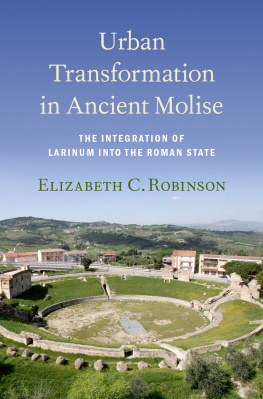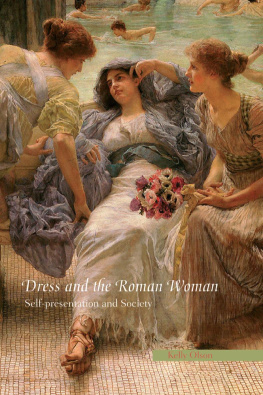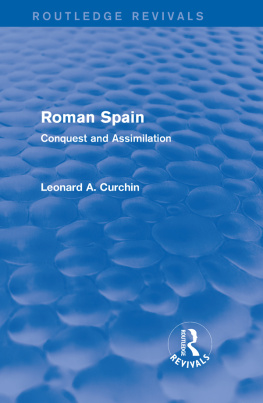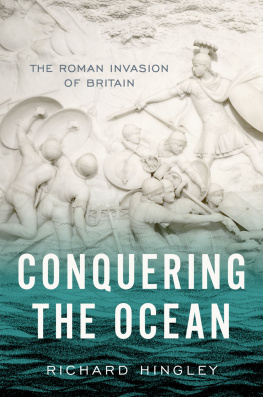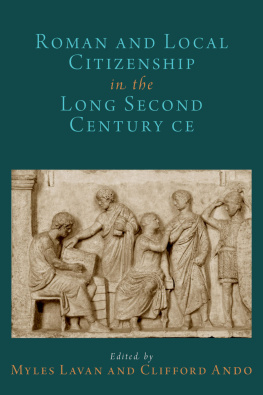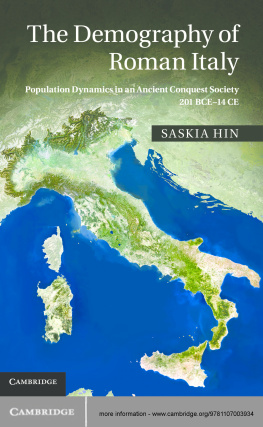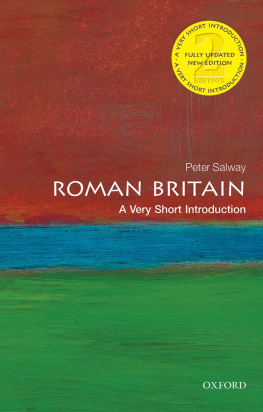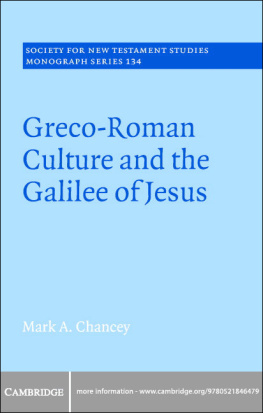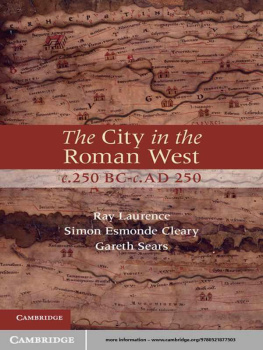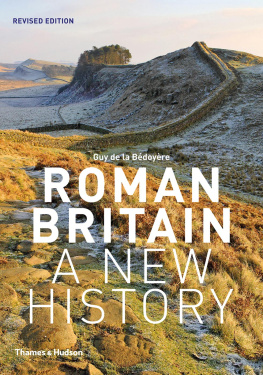Urban Transformation in Ancient Molise

Oxford University Press is a department of the University of Oxford. It furthers the Universitys objective of excellence in research, scholarship, and education by publishing worldwide. Oxford is a registered trade mark of Oxford University Press in the UK and certain other countries.
Published in the United States of America by Oxford University Press
198 Madison Avenue, New York, NY 10016, United States of America.
Oxford University Press 2021
All rights reserved. No part of this publication may be reproduced, stored in a retrieval system, or transmitted, in any form or by any means, without the prior permission in writing of Oxford University Press, or as expressly permitted by law, by license, or under terms agreed with the appropriate reproduction rights organization. Inquiries concerning reproduction outside the scope of the above should be sent to the Rights Department, Oxford University Press, at the address above.
You must not circulate this work in any other form and you must impose this same condition on any acquirer.
Library of Congress Cataloging-in-Publication Data
Names: Robinson, Elizabeth C., author.
Title: Urban transformation in ancient Molise : the integration of Larinum
into the Roman state / Elizabeth C. Robinson.
Description: New York : Oxford University Press, [2021] |
Includes bibliographical references and index.
Identifiers: LCCN 2020047166 (print) | LCCN 2020047167 (ebook) |
ISBN 9780190641436 (hardback) | ISBN 9780190641450 (epub) |
ISBN 9780190641467
Subjects: LCSH: Larino (Italy)Antiquities, Roman. |
Larino Region (Italy)Antiquities, Roman. | Molise (Italy)Antiquities, Roman. |
UrbanizationItalyLarinoHistory. |
UrbanizationItalyMoliseHistory. |
Excavations (Archaeology)ItalyLarino. |
Excavations (Archaeology)ItalyMolise. | Cicero, Marcus Tullius. Pro Cluentio.
Classification: LCC DG70. L365 R63 2021 (print) | LCC DG70. L365 (ebook) |
DDC 937/.73302dc23
LC record available at https://lccn.loc.gov/2020047166
LC ebook record available at https://lccn.loc.gov/2020047167
DOI: 10.1093/oso/9780190641436.001.0001
For my family, with love and gratitude
Contents
This book originated as a PhD thesis completed at the University of North Carolina at Chapel Hill in 2013. The origins of the project stem from my desire to understand better the processes of change and transformation that occurred in the late first millennium bce as Rome conquered the Italian peninsula. I was intrigued by the idea of conducting a case study of an individual site in order to examine these processes in detail at the local and individual levels. After considering several possible sites, I finally asked Professor Mario Torelli if he had any suggestions. His answer was, unequivocally, Larinum. This book would not have been possible without his suggestions and support, and I am deeply saddened that I will not be able to present him with the copy that I had promised him. The field of Italian archaeology suffered a tremendous loss with his death in September 2020, and those of us who had the privilege of knowing him lost a beloved mentor.
I became affiliated with Professor Torelli in 2009 through a Fulbright Graduate Student Full Grant. I am grateful to have received both a Fulbright Grant and the Olivia James Traveling Fellowship from the Archaeological Institute of America for that year. These awards allowed me to study and live in Larino, the modern village of 7,000 inhabitants that sits atop the ancient site. I would sincerely like to thank the people of Larino for their support of my work from 2009 onward. I am particularly grateful to Maria Piera Galante; Antonio, Sara, and Luigi Di Ninno; Massimo Starita; Michele Palmiere; Napoleone Stelluti; Roberto Rainone; Antonia Vallillo; Elvira Notarangelo; Tonia Di Marzo; Antonella Piacente; Marina and Salvatori Zeoli; Enrico Cacchione; Pardo Mezzapelle; Don Giovanni Licursi; Ettore Ricci; and Antonietta Iacovodonato. My time in Larino was unforgettable, and it allowed me to experience the history and archaeology of the site in a way that never would have been possible from Chapel Hill.
I am grateful to have received a two-year Irene Rosenzweig/Samuel H.

